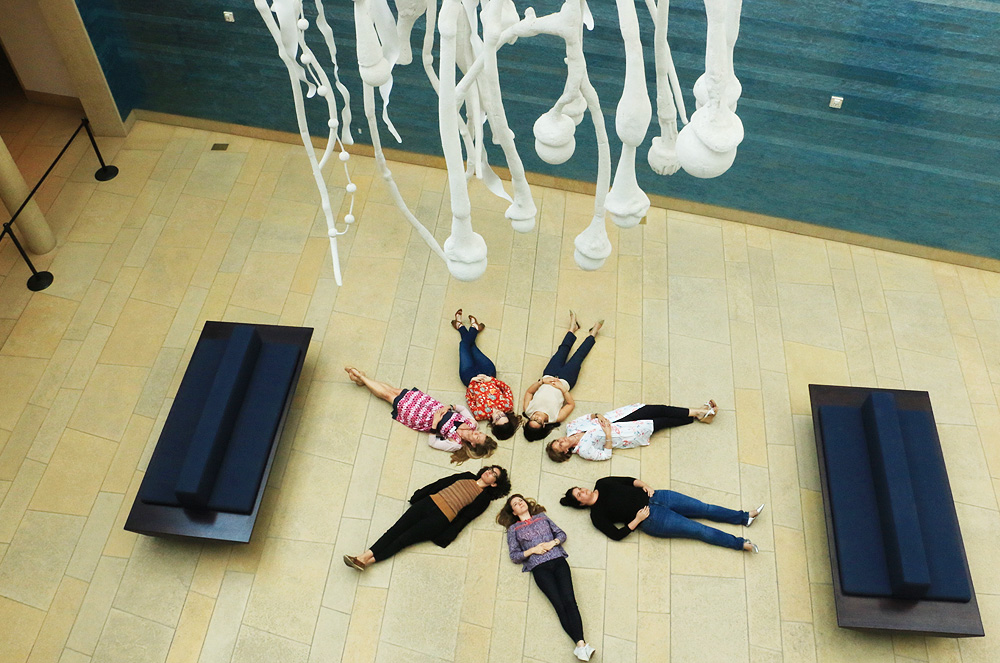
Mindfulness is "the awareness that emerges through paying attention on purpose, in the present moment, and non-judgmentally to the unfolding of experience moment by moment" (p. 145, Kabat-Zinn, 2003; Kerrigan et al., 2017).
Mindfulness has been shown to improve memory and testing performance, reduce stress levels, and foster better physical health (Bonamo, Legerski, & Thomas, 2015; Kerrigan et al., 2017). Mindfulness practice has also been shown to improve mental-health outcomes for students who are struggling in an academic setting (Dvorˇáková et al., 2017). While the goal of mindfulness is not to help people achieve more, it has remarkably reliable effects on well-being, academic performance, stress reduction and general health for its practitioners.

I use mindfulness techniques within my class to teach self-care, and I haven’t thrown any content away. For example, we went to the Blanton on the first day of class, and students found different pieces of artwork to consider things like the message and how the piece made them feel. They also focused on relaxing and breathing as they looked at the artwork. It took their minds off anything scientific.
|

 I LOVED IT WHEN OUR PROFESSOR TAUGHT US A MINI MINDFULNESS TECHNIQUE TO USE BEFORE EACH CLASS STARTED. IT WAS A REALLY RIGOROUS CLASS AND IMPORTANT FOR ME TO DO WELL IN. HER TECHNIQUE HELPED ME NOT FREAK OUT BEFORE TESTS. NOW I AM USING IT IN OTHER CLASSES TOO!
|